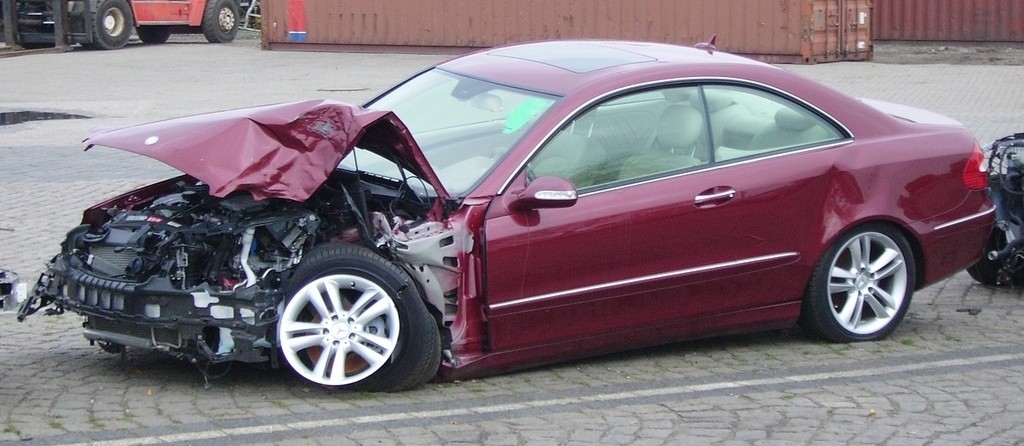
While car accidents are extremely common in the United States, drivers still don’t know how to act when they get involved in one. Many victims make mistakes that affect their ability to receive compensation, sometimes even placing themselves on the receiving end of ensuing legal battles. Read on for the eight common mistakes motorists make following car accidents and how you can avoid them.
- Not hiring a lawyer
After being in a car accident, you may feel confused and overwhelmed. Contacting a car crash lawyer can help to ease some of this stress. A car accident lawyer will be able to guide you through the legal process and help you understand your options. They can also help you negotiate with insurance companies and ensure that you receive the compensation you deserve. In addition, a car accident lawyer can provide support and advice during what is likely to be a difficult time. Finally, they can help protect your rights and give you the guidance you need.
Having a lawyer by your side can be incredibly advantageous regardless of who is at fault for the accident. Your attorney will serve as a link between you and the insurance adjusters, leaving you to focus on your recovery. They will also navigate and expedite the typically intricate claim-filing process. Experienced car accident lawyers, such as this Oklahoma lawyer, will help you quantify your losses so you know what to expect in compensation.
- Fleeing the scene
Leaving the scene of a car accident before the arrival of a police officer is illegal and is often interpreted as an admission of guilt. No matter how urgently you need to get on with your journey, ensure that you stop, exchange information with other involved parties, and call the police if no one has done so yet. Not only will this save you from a potential clash with law enforcement, but it will also increase your chances of fair compensation as you will have sufficient information to build a strong case.
- Admitting fault
Saying anything that suggests you admit fault will impact your case, whether or not you are indeed responsible. For instance, apologizing to an injured driver can be used as evidence against you in circumstances where it’s not clear who caused the collision. You should also beware of insurance representatives who will be looking for the slightest reason to put the blame on anyone other than their client.
- Not collecting evidence
Pictures and videos are the best forms of evidence you can present to insurance adjusters and in court. They will show how the collision happened and reveal the at-fault party. Be sure to take your pictures immediately after the accident when none of the involved vehicles has moved. Capture as many angles and relevant details as possible and hand them over to your lawyer on demand.
- Not seeking medical attention
Even if you have no bruises or pain after an accident, it is advisable to see a doctor as soon as possible. Adrenaline can engulf the pain, giving you a false impression that you didn’t get hurt. Injuries that are discovered later are normally not included in the claim as it is difficult to attribute them to the accident. Sometimes, injuries show up long after the victim has been compensated and the case has been closed, making them entirely the victim’s financial responsibility.
- Accepting the initial insurance offer
Often when insurance companies realize their client was blatantly at fault for an accident, they approach victims with settlement offers. While this will save you plenty of time and money, chances are you will be offered way less than your case merits. Insurance companies will always look to keep payouts low, so it is important to quantify damage separately before entertaining any offer.
- Not notifying your insurance company
Every auto insurance policyholder is obligated to inform their insurer of any accident involving the insured car. Failure to do so is a breach of the policy terms and will give the company grounds for rejecting your claim. Note that notifying your insurance company doesn’t mean discussing your case or opinion in detail. Insurance adjusters will be ready to elicit a damaging statement from you, and sharing too much in the heat of the moment will make you particularly vulnerable to such tactics. To avoid playing into sneaky adjusters’ hands, ensure you contact your lawyer before them.
- Waiting too long to file a claim
It doesn’t matter how strong your case is; if you don’t file your claim before the expiry of your state’s Statute of Limitations, you will potentially lose your right to compensation. The time limit to file personal injury and property damage claims in most states is two to three years. Different rules may apply to minors. However, for a less complex process, you should consider getting started as soon as possible, regardless of your age.
Endnote
Accidents cannot be anticipated, and your safety on the road is not all down to how carefully you drive your car. For this reason, you need to know what to do and what not to in the event the worst happens. The above mistakes are very common among drivers, and avoiding them will speed up your case and increase your chances of getting maximum compensation.



























